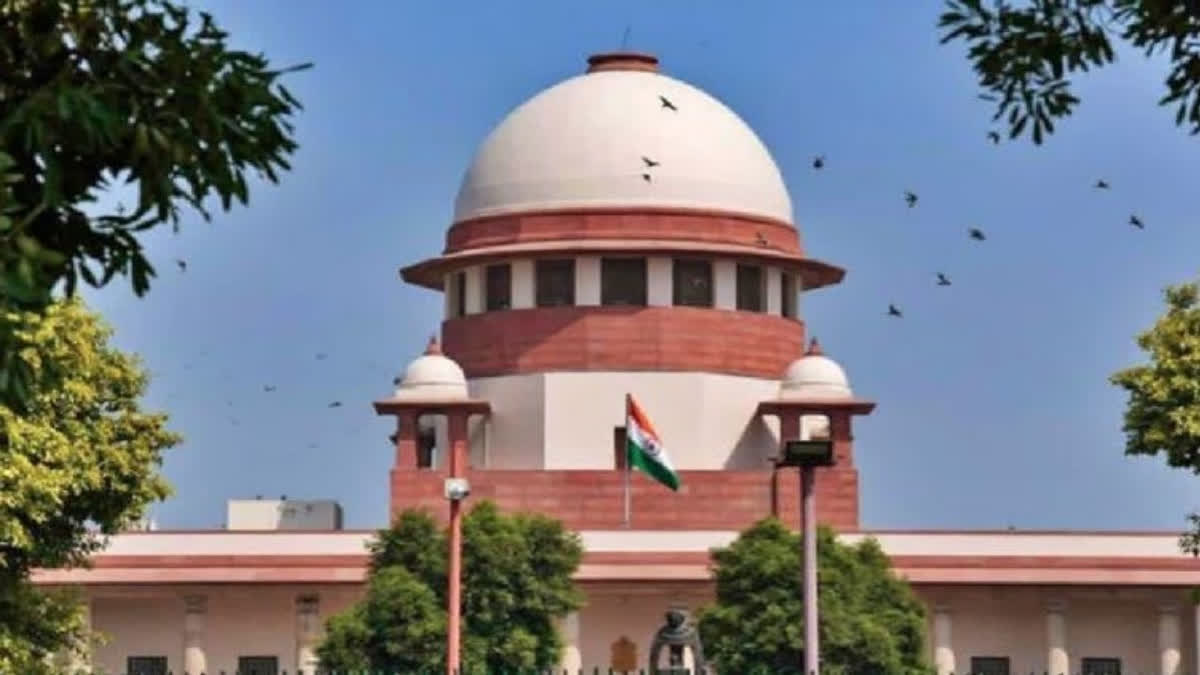New Delhi: The Supreme Court on Monday declined to entertain a plea against the exclusion of the penal provisions for the offences of unnatural sex and sodomy from the Bharatiya Nyay Sanhita (BNS), which replaced the Indian Penal Code (IPC). The BNS came into force on July 1, 2024. The apex court said it cannot compel the Parliament to introduce laws, and also it can't create an offence.
The matter was heard by a three-judge bench led by Chief Justice of India DY Chandrachud and comprising justices JB Pardiwala and Manoj Misra. At the outset, the bench made it clear that the issue brought up before the court falls within the parliamentary domain. Declining to entertain the petition, the bench said it cannot pass any direction in the matter. "We can't compel Parliament to introduce laws. We can't create an offence...this court under Article 142 cannot direct that a particular act constitutes an offence. Such exercise falls under parliamentary domain," said the bench.
However, the apex court allowed the petitioner to approach the government with a representation on the issue. The apex court was hearing a plea filed by one Pooja Sharma seeking to address the “exigent legal lacuna” resulting from the enactment of the BNS.
Section 377 of the IPC punished non-consensual "unnatural sex" between two adults, sexual activities against minors and bestiality. On September 6, 2018, the Supreme Court, however, decriminalised same-sex relationships between two consenting adults.
The Delhi High Court, in August 2024, had asked the Centre to make its stand clear on the exclusion of penal provisions for the offences of unnatural sex and sodomy from the recently introduced BNS. The High Court had said the legislature needs to take care of the issue of non-consensual unnatural sex.
Read more: SC: Can't Say That in Pursuit of My Fundamental Right Set up a Separate Television Channel



